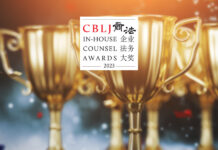The internet has been the most omnipresent form of media for two decades and along with all its benefits and popularity the legal ramifications have increased manifold. These include copyright infringement, which has been rampant for many years.

Intellectual property rights holders sue intermediaries because intermediaries serve as the informational and access gateways for infringing activities and it is more cost effective to seek redress from them than from individual users such as uploaders, downloaders, seeders and linkers. Also, intermediaries are targeted by rights holders for not preventing or helping stem the deluge of infringing activities facilitated through the intermediaries’ platforms, technology and services.
In response to these claims, policies are being reformed and laws undergoing constant amendments. Courts are formulating new rules to find intermediaries indirectly liable for the infringing conduct of their users. Judicial solutions in civil and common law jurisdictions include recognizing claims in vicarious and contributory liability, authorizing and inducing infringement, joint liability under tort law, aiding, abetting and negligence.
You must be a
subscribersubscribersubscribersubscriber
to read this content, please
subscribesubscribesubscribesubscribe
today.
For group subscribers, please click here to access.
Interested in group subscription? Please contact us.
你需要登录去解锁本文内容。欢迎注册账号。如果想阅读月刊所有文章,欢迎成为我们的订阅会员成为我们的订阅会员。
Daksh Kumar is a senior associate at LexOrbis.
709/710 Tolstoy House, 15-17 Tolstoy Marg
New Delhi – 110 001
India
Tel: +91 11 2371 6565
Fax: +91 11 2371 6556
Email: mail@lexorbis.com























